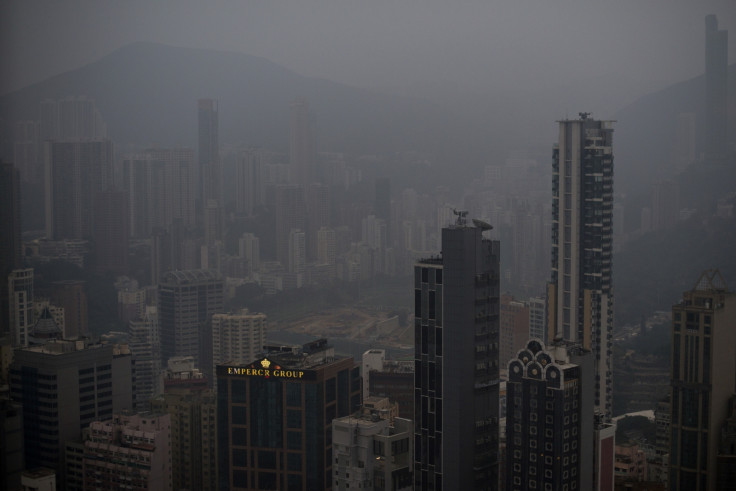Hong Kong chokes as air pollution reaches serious levels
The thick haze covering many parts of Hong Kong is said to have been caused by a nearby Taiwan-bound tropical cyclone.

Hong Kong's air quality has plummeted leaving some parts of the territory with serious levels of air pollution on Monday (26 September). It is expected to remain hazy until 28 September, according to the city's Environmental Protection Department.
The condition was caused by a nearby Taiwan-bound tropical cyclone, which is said to have created favourable conditions for photochemical smog activity, leading to high pollution in the city. Light winds across the region also stalled the dispersion of pollutants, the South China Morning Post (SCMP) reported.
The department also issued a warning that pollution levels would continue to remain high on Tuesday (27 September). However, a few showers and cloudy weather could see the haze ease on 28 September, the environment department said.
The air quality health index on Monday showed severe warning on the scale, suggesting serious health risks. The severe warning is for the western part of Hong Kong, including Yuen Long and Tung Chung. People from these parts of the city, especially, children and the elderly suffering from heart or respiratory ailments were advised to stay indoors.
Air pollution from declining air quality has seen an alarming rise in cases of asthma and bronchial infections in the Hong Kong and Asia Pacific regions.
Hong Kong — a semi-autonomous state under a 'one country, two systems' arrangement with China — has often come under criticism from the World Health Organisation (WHO) for its bad air quality. The contributory factor is said to be increasing traffic congestion, driven by growing number of private cars.
An environmental agency report in July said air pollution levels in the city had far exceeded the safety limits set by the WHO. Concentrations of nitrogen oxides in the air have surpassed WHO levels in the last five years. Emissions on roads alone are reported to have been nearly two and half times higher than recommended rates in some parts of Hong Kong.
Over 90% of the world is breathing bad air, WHO said on Tuesday (27 September). Earlier reports suggest air pollution takes the lives of around seven million people every year. One in eight deaths across the globe was due to pollution in 2012, the global body said. The deaths were mainly due to heart diseases or respiratory infections.
In Hong Kong alone, an estimated 821 pollution-related premature deaths were recorded until June 2016, according to data from the Hedley Environmental Index.
With air pollution levels increasing at an alarming rate countries across the world are coming together to sign the Paris deal on climate change. China and the US recently ratified the pact during the Hangzhou G20 summit, to help in reducing man-made carbon dioxide emissions worldwide.
© Copyright IBTimes 2024. All rights reserved.





